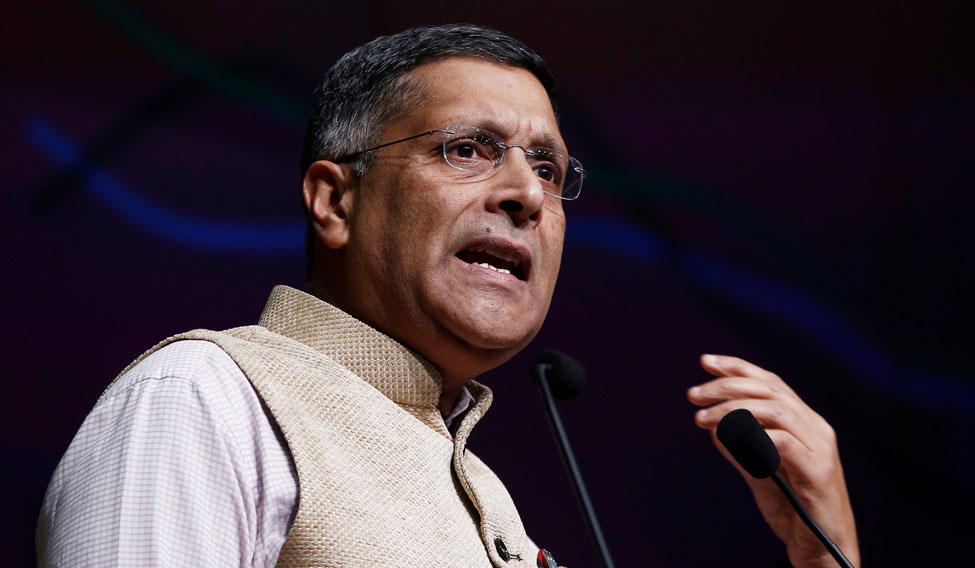Finance Minister Arun Jaitley tabled the Economic Survey 2018 in Parliament on Monday. The survey, tabled soon after President Ram Nath Kovind's first joint Parliament address, projected GDP growth of 7-7.5 per cent for the year 2018-19. This is against the 6.95 per cent projected for 2017-18.
"A series of major reforms undertaken over the past year will allow real GDP growth to reach 6.75 per cent this fiscal and will rise to 7.0 to 7.5 per cent in 2018-19, thereby reinstating India as the world’s fastest growing major economy," the survey stated. There is a reversal of the declining trend of GDP growth in the second quarter of the current fiscal, led by the industry sector.
It saw the avergae crude oil crude oil prices rising about 12 per cent in the next financial year. The survey also says that Indian economy is on a path of revival after a "temporary decoupling". However, it added that "nascent macro pressures" remain primarily due to oil prices and fiscal targets.
As per the survey, documented by the finance ministry, GST revenues are doing well and has seen "better buoyancy than previous taxes" at a growth rate of 12 per cent.
The major achievements in the past year include GST implementation, tackling of long-festering Twin Balance Sheet challenge by sending stressd debtors to the Insolvency and Bankruptcy Code (IBC), and bank recapitalisation. Indian economy's first sovereign upgrade in 14 years was validation that it is on the right track of reforms.
Job creation remains a challenge due to higher expected increase in imports, net exports of goods and services slated to decline in 2017-18.
However, it added that despite the robust economic growth, the savings and investment as a ratio of GDP generally declined in 2017-18. "The major reduction in investment rate occurred in 2013-14, although it declined in 2015-16, too. Within this, the share of household sector declined, while that of private corporate sector increased."
Following are the highlights of the Economic Survey 2017-18 tabled by Finance Minister Arun Jaitley in the Lok Sabha.
* GDP growth to be 6.75 per cent in FY2017-18
* Policy vigilance required next fiscal if high oil prices persist or stock prices correct sharply
* Policy agenda for next year—support agriculture, privatise Air India, finish bank recapitalisation
* GST data shows 50 per cent rise in number of indirect taxpayers
* Tax collection by states, local governments significantly lower than those in other federal countries
* Demonetisation has encouraged financial savings
* Insolvency Code being actively used to resolve NPA woes
* Retail inflation averaged 3.3 per cent in 2017-18, lowest in last 6 fiscals
* India needs to address pendency, delays and backlogs in the appellate and judicial arenas
* Urban migration leading to feminisation of farm sector
* Rs 20,339cr approved for interest subvention for farmers in current fiscal
* FDI in services sector rises 15 per cent in 2017-18 on reforms
* Fiscal federalism, accountability to help avoid low equilibrium trap
* India's external sector to remain strong on likely improvement in global trade
* Technology should be used for better enforcement of labour laws
* Swachh Bharat initiative improved sanitation coverage in rural areas from 39 per cent in 2014 to 76 per cent in January 2018
* Priority to social infrastructure like education, health to promote inclusive growth
* Centre, states should enhance cooperation to deal with severe air pollution
* Suvey 2017-18 in pink colour to highlight gender issues
* Indian parents often continue to have children till they have desired number of sons





